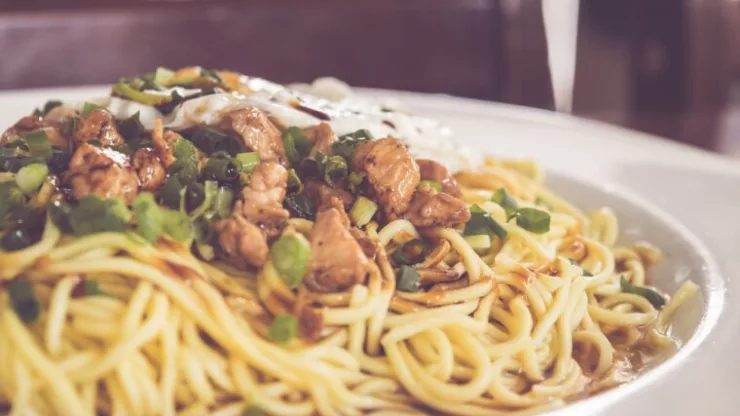If you are a fan of spicy food, you might be surprised to learn that eating it can offer more than just a fiery flavor experience.
Studies have shown that consuming spicy food can provide a range of health benefits that may surprise you.
In this article, we will explore the advantages of spicy food and how it can improve your health.
What Makes Spicy Food So Hot?
Spicy food contains a chemical compound called capsaicin, which is found in chili peppers. Capsaicin is responsible for the fiery sensation you experience when you eat spicy food.
It works by binding to receptors in your mouth and throat that are responsible for detecting heat, causing them to send signals to your brain that you are experiencing something hot and spicy.
Health Benefits of Eating Spicy Food

- Boosts Metabolism
Capsaicin has been shown to increase metabolism, helping you burn more calories.
This is because it raises your body temperature, forcing your body to work harder to cool down.
A study found that consuming a meal with capsaicin-rich chili peppers increased metabolic rate by 8% for up to two hours after eating.
- Reduces Inflammation
Capsaicin has anti-inflammatory properties that can help reduce inflammation in the body.
This can be especially beneficial for people with inflammatory conditions such as arthritis, as it can help alleviate symptoms.
- Promotes Heart Health
Studies have shown that consuming spicy food can help reduce the risk of heart disease.
Capsaicin can lower blood pressure, reduce cholesterol levels, and improve circulation, all of which contribute to better heart health.
- Improves Digestion
Spicy food can also aid in digestion by increasing the production of gastric juices in the stomach.
This can help break down food more efficiently and reduce the risk of indigestion and other digestive problems.
- Provides Pain Relief
Capsaicin has been used for centuries to relieve pain.
It works by blocking the pain signals sent to the brain, providing relief for conditions such as migraines and arthritis.
Frequently Asked Questions
Q: Can eating spicy food cause stomach ulcers?
A: Contrary to popular belief, spicy food does not cause stomach ulcers.
In fact, studies have shown that capsaicin can actually help prevent ulcers by killing bacteria that can cause them.
Q: Is it safe to eat spicy food during pregnancy?
A: While there is no evidence to suggest that consuming spicy food during pregnancy is harmful, it can cause discomfort such as heartburn or acid reflux.
If you are pregnant and want to eat spicy food, it is best to do so in moderation.
Q: How can I build up my tolerance to spicy food?
A: Gradually increasing your consumption of spicy food can help build up your tolerance.
Start with mild spices and work your way up to hotter ones over time.
Q: Is it possible to be allergic to spicy food?
A: While rare, some people may be allergic to capsaicin.
Symptoms of an allergic reaction can include hives, swelling, and difficulty breathing.
If you experience these symptoms after consuming spicy food, seek medical attention immediately.
Conclusion
Spicy food not only adds flavor to your meals but can also offer a range of health benefits.
From boosting metabolism to reducing inflammation, the benefits of consuming spicy food are numerous.
So the next time you’re feeling adventurous in the kitchen, don’t be afraid to spice things up!

I am a fun fact enthusiast and creator of Facts On Tap.
I love to share my knowledge and curiosity with readers and inspire them to learn something new every day.
When I’m not writing, I enjoy traveling, reading, and playing trivia games with my friends.





